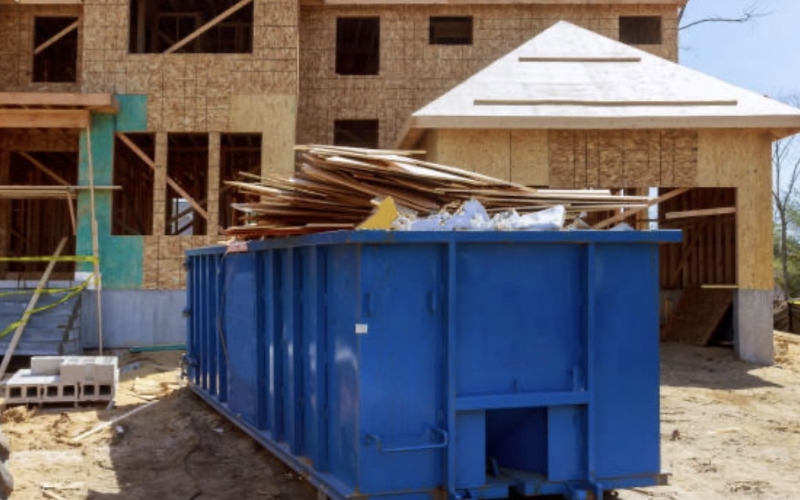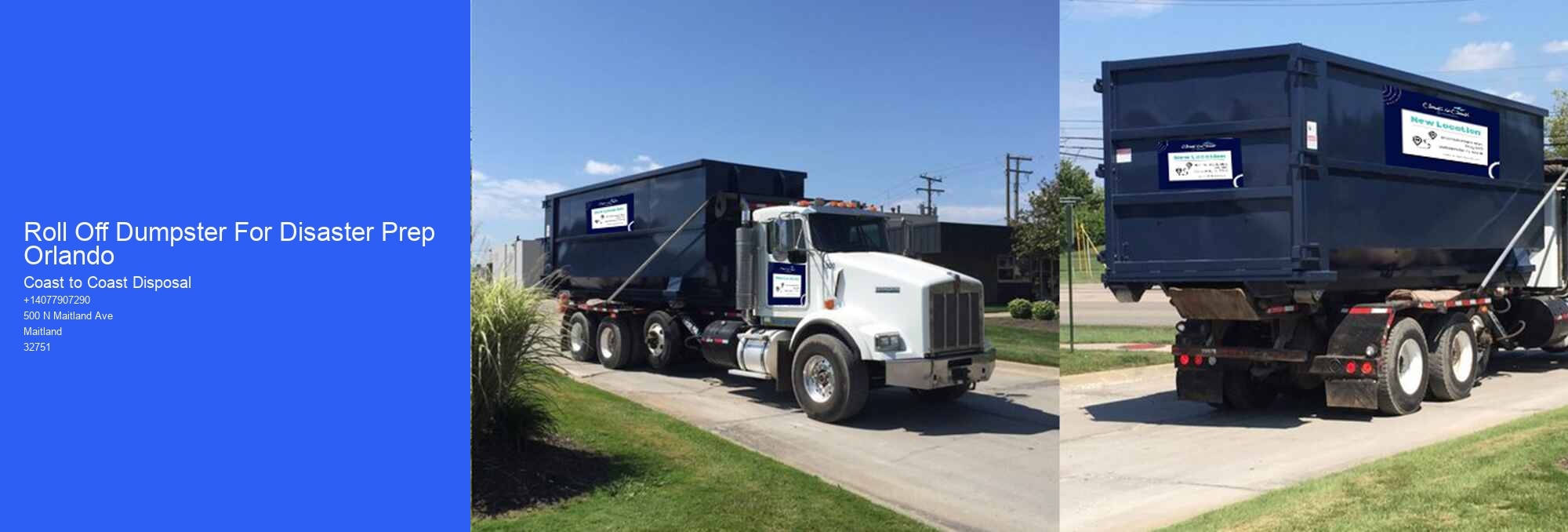Choosing the Right Container for Roofing Debris in Orlando
Selecting the appropriate container for roofing debris in Orlando requires careful consideration of size and accessibility to ensure an effective cleanup process. There are several options available, each designed to handle different amounts of debris, ranging from small renovations to large roofing projects. Additionally, understanding local regulations is crucial to avoid potential fines and ensure compliance with waste management protocols. Ultimately, making a well-informed choice will result in a smoother project experience and promote sustainable waste management practices.
- Evaluate the amount of roofing waste to identify the suitable container size, generally measured in cubic yards
- Take into account the weight of the debris, as containers have maximum weight limits that should not be surpassed for safe transportation
- Verify the container's measurements to confirm it will fit in the specified loading and unloading area
- Take into account local regulations regarding container placement and duration of use to avoid fines
- Monitor the fill level of the container to optimize loads and prevent overfilling, which may pose safety hazards
Coast to Coast Disposal left a strong impression on me with their expertise in managing the waste challenges that arose during my roofing renovation. The variety of containers they provided, appropriate for both minor updates and major renovations, made the selection process easier. What was impressive was their deep understanding of local disposal regulations, which enabled me to avoid any possible fines. Thanks to their guidance, my project ran smoothly and adhered to eco-friendly practices, making the entire experience remarkably efficient.
Coast to Coast Disposal 500 N Maitland Ave, Maitland, FL 32751, United States
Advantages of Temporary Dumpsters for Roofing Projects
Utilizing temporary waste containers for roofing projects offers an effective way to handle debris, contributing to a tidy work environment. These solutions enhance efficiency and boost safety by minimizing trip hazards associated with cluttered materials. In addition, they offer an eco-friendly method for disposing of old shingles and other waste, promoting effective recycling practices. By choosing these adaptable waste disposal methods, homeowners can keep their project schedules on track while complying with local regulations.
- Temporary dumpsters aid in the cleanup process by allowing for quick disposal of roofing materials and debris
- Utilizing a dumpster prevents property damage by holding materials and keeping them off your lawn or driveway
- Choosing the appropriate dumpster size guarantees sufficient space for your waste, preventing overflow and the need for multiple trips
- Placing the dumpster in an optimal location minimizes workflow disruptions and enhances safety on the job site
- Properly managing waste with a dumpster guarantees compliance with local laws regarding the disposal of construction materials
Coast to Coast Disposal enhanced my roofing project by delivering exceptional temporary waste containers that made debris management easy and maintained a clean workspace. For More Information this page . Their service increased productivity and improved safety, significantly lowering the chances of accidents due to scattered debris. Furthermore, their dedication to environmentally friendly disposal practices for shingles and waste made recycling easy and accountable. Selecting their flexible waste management solutions enabled my project to advance seamlessly while adhering to local regulations.

Navigating Local Rules for Dumpster Usage in Orlando
It is crucial to comprehend the local regulations and requirements when dealing with the complexities of waste container use in Orlando. Local authorities set specific rules regarding the placement, duration, and types of waste permitted in these bins. Not being aware of these regulations may result in fines or delays in projects, highlighting the significance of compliance for both residential and commercial activities. Interacting with the regulatory framework facilitates a seamless process for managing debris disposal efficiently.
- Familiarize yourself with Orlando's zoning laws regarding the location of dumpsters on residential and commercial properties
- Review the legal requirements for acquiring a permit to set up a dumpster, including the application process and related fees
- Consider the restrictions on dumpster sizes and types based on the project's objectives and location
- Familiarize yourself with the local waste management regulations that outline the materials permitted in dumpsters to ensure compliance
- Keep up to date on any seasonal rules or temporary limitations that could impact dumpster usage during events or construction activities
Coast to Coast Disposal in Orlando has made waste management easier by leveraging their valuable expertise. They informed me about the local rules regarding bin placement, duration of use, and acceptable types of waste, turning what might have been a challenging task into an easy one. Their advice helped avoid possible penalties and delays, highlighting the importance of following regulations for residential and commercial projects. Collaborating with them not only optimized my disposal process but also ensured a smooth experience in managing debris.
Tips for Efficiently Managing Waste During Your Roofing Project
For easier disposal of roofing debris, think about utilizing a large waste container service that can handle significant amounts of material. Diligently distinguishing between recyclable and non-recyclable materials can significantly enhance the success of your project. Utilizing nearby recycling centers for items like shingles and metals can decrease landfill waste and encourage sustainability. Additionally, scheduling regular pickups can help maintain a tidy worksite, enhancing safety and efficiency throughout your roofing project.
- Efficient waste management reduces project expenses by cutting disposal costs and enhancing material recycling
- Proper planning can streamline the waste separation process, making recycling easier and more efficient
- Ineffective waste management can lead to site disorder, safety hazards, and potential project delays
- Unawareness of local recycling rules can lead to non-compliance and extra penalties
Coast to Coast Disposal in Orlando truly transformed my project by providing an expansive waste container service perfectly tailored for hefty roofing remnants. Their ability to distinguish between recyclable and non-recyclable materials greatly improved our operational efficiency. Collaborating with nearby recycling centers for specific components, like shingles and metals, not only minimized our ecological footprint but also championed sustainability. Moreover, their prompt pickups kept the workspace organized, fostering a safe and efficient environment during the roofing project.
Choosing a Trustworthy Dumpster Provider for Your Roofing Endeavors
When choosing a reliable waste container service for your roofing project, focus on those with solid reputations and favorable reviews from past customers. Check if the provider has different container sizes to suit the particular amount of debris produced by your roofing projects. Furthermore, make certain that the service complies with local regulations and holds the required licenses for operation, demonstrating their dedication to compliance. In the end, consider the responsiveness of their customer support, as a reliable partner will be prepared to address any questions or problems that may come up during your project.
- Coast to Coast Disposal offers flexible rental periods, allowing customers to choose the timeframe that best suits their roofing project
- The company provides various dumpster sizes, enabling customers to select the right capacity for their needs
- Coast to Coast Disposal highlights transparent pricing with no hidden charges, making it easier for customers to manage their budgets
- Their dedication to environmentally friendly disposal methods distinguishes them, as they recycle a substantial amount of the materials they collect
- Excellent customer service and prompt delivery times enhance the overall experience, ensuring projects stay on schedule
Coast to Coast Disposal exceeded my expectations with their exceptional service during my roofing project. The range of container sizes they provided perfectly matched the volume of debris I encountered, demonstrating their adaptability. I was particularly impressed by their strict adherence to local laws and necessary permits, which highlighted their dedication to operating above board. Moreover, their prompt customer support was a breath of fresh air, as they were always ready to tackle any questions I had, making the entire experience seamless.
The Ecological Consequences of Roofing Waste Disposal in Orlando
The improper disposal of roofing materials in Orlando significantly damages the environment, as these materials often find their way into landfills, where they release harmful pollutants. Innovative waste management approaches, such as leasing specialized containers, can tackle this issue by promoting recycling and proper disposal methods. By diverting debris from traditional waste streams, communities can foster a more sustainable approach to construction and renovation projects. In the end, tackling this issue improves local ecosystems and promotes responsible practices for both contractors and homeowners.
Coast to Coast Disposal in Orlando truly revolutionized my experience with waste management, tackling the prevalent issue of roofing material disposal head-on. Their innovative container rental options streamlined the process while also encouraging eco-friendly practices, preventing harmful pollutants from entering landfills. By redirecting waste from conventional disposal methods, they help our community adopt more sustainable approaches in construction and renovation initiatives. This proactive strategy not only rejuvenates our local environment but also encourages contractors and homeowners to adopt responsible practices.

 Orlando
Orlando